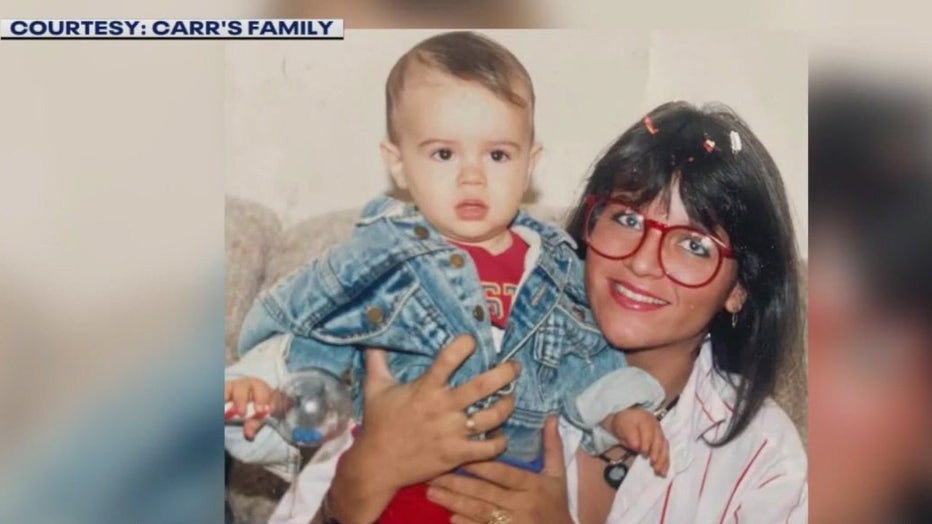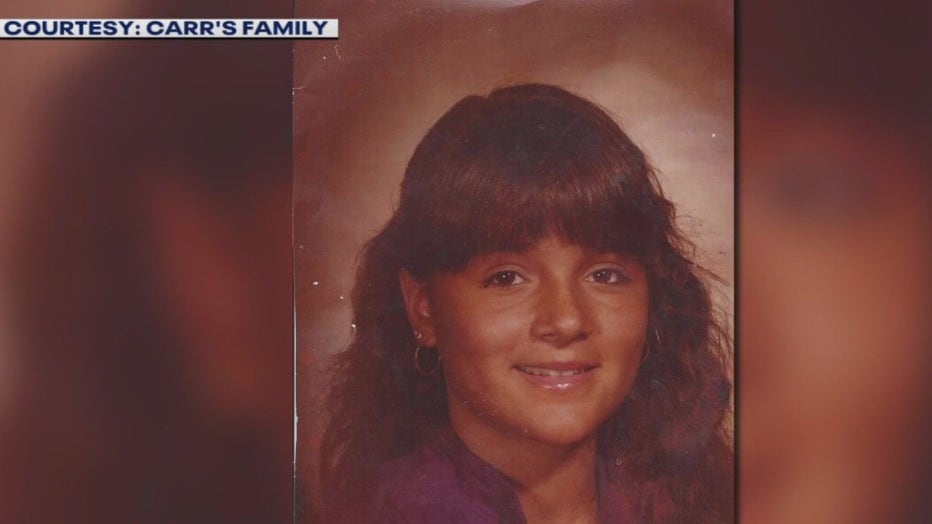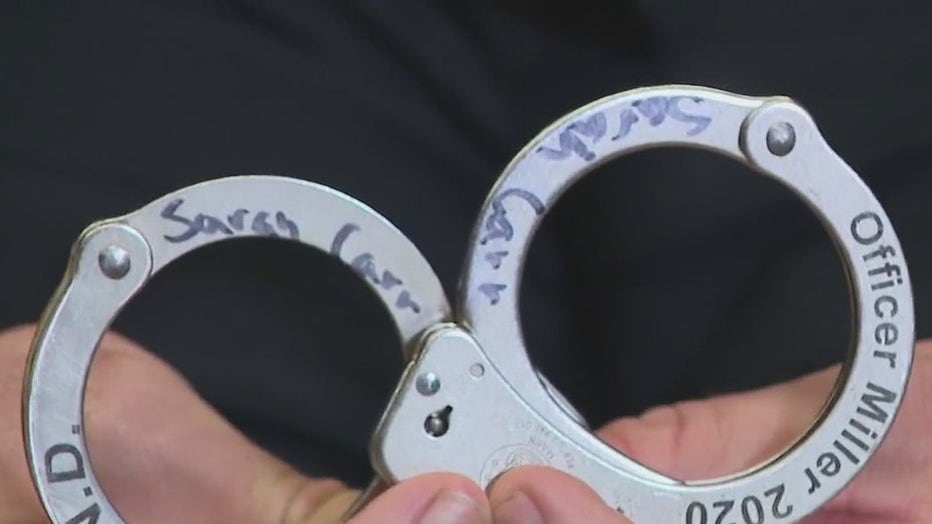Son of solved Arizona cold case victim becomes Austin police officer
APD officer's mom's murder case is solved
A 26-year-old Arizona cold case has been solved. One of the victim's sons, Garrett Miller, is a police officer in Austin. He wanted to help others who are going through what he did.
AUSTIN, Texas - A 26-year-old Arizona cold case has been solved.
One of the victim's sons, Garrett Miller, is a police officer in Austin. He wanted to help others who are going through what he did.
His mother, Sarah Jane Carr, was murdered in Phoenix on July 9, 1998. She was 28-years-old. Her killer was on the loose for decades.
"My mom had gone to this guy's house with a friend, and an argument ensued, and then he ended up shooting and killing my mom and then fleeing," Miller said.
Miller was only two-years-old at the time. He and his siblings were in an Arizona foster home. Then, they were adopted by their grandparents and moved to Kerrville, Texas. He eventually pieced together what happened as a teenager.

"Once it kind of clicked, I'd probably say in high school, and it started to make sense to me, it was really tough," he said. "Growing up in high school, I had my few run-ins with the law, and I kind of thought that was going to be my path and my destiny."
Carr was a mother of six. Miller was emotional as he described her.
"She's beautiful. I see pictures, maybe I'm biased because it's my mom, but I'd say she was probably one of the most gorgeous women to walk the Earth," Miller said. "It's just the stories I hear. She's just a light for everybody. She was the life of a party. She lit up rooms when she walked in. She wasn't afraid of anyone or anything. My mom had some demons she was battling, but through the demons, she was a mom, first and foremost. She would do anything for her kids. I think if she were here today, she would have been the best mom."
Detectives had a suspect and his nickname in Carr's case but couldn't fully identify him until 2016 as Javier Lorenzano-Nunez, now 58. They just needed to find him.
Meanwhile, in 2019, Miller applied to the Austin Police Academy, choosing Austin after thinking about it in high school, and was accepted after applying to different agencies.

"One of the reasons for that is my feeling of injustice and my feeling of, 'am I ever going to get justice, when my day ever come?' That's kind of like a catalyst to why I wanted to be a cop, because I didn't want other people to feel the way I felt when I grew up or even after that," he said.
When he graduated from the academy, a coach gifted him a special pair of handcuffs.
"Once the ball started rolling with my mom's case, I said, you know what, I must save this for a special occasion, and I want to use these when and if the day were to come that my mom's murderer's extradited back," he said.
On July 9, 2024, on the 26th anniversary of Carr's death, detectives told Miller they had found Lorenzano-Nunez in Mexico. He was extradited to the U.S. in October.
"When I found out on the anniversary date, I was kind of at a loss for words," Miller said. "It's been a lot of emotions. It's still kind of surreal, and it's been almost a month now, but it's been nice to kind of process it."
He was able to see the authorities put those special handcuffs on Lorenzano-Nunez.
"It was like a little cherry on top," Miller said.

Miller says he's found his calling as a police officer.
"Knowing that I can be there for people on their worst day, and I can bring some type of comfort to them, that's one of the best feelings. I have a soft spot for kids who grow up in broken homes and single moms and mothers that have addiction problems," he said. "Anybody that will listen to my story, I try and relate to people and especially these kids, the younger kids that are going down the same path I went down, I try and tell them like, 'hey, things do get better.' I can understand why they're acting the way they're acting in certain instances."
He encourages others going through similar situations to not give up.
"This is kind of a testament to the things that go on behind-the-scenes at police departments. Mine was a 26-year cold case. There were days I'd wake up and I thought nothing was ever going to get done. Nothing was going to happen," he said. "My message is not to lose hope and that things are being worked. There's a lot of things that people can't see. I hope that people who are possibly in the same situation as me, are dealing with something similar, that they can kind of see this and say, 'hey, he got his justice. It took him 26 years. You know, my day is coming too.'"
The Source: Information for this report is from interviews conducted by FOX 7 Austin's Angela Shen

